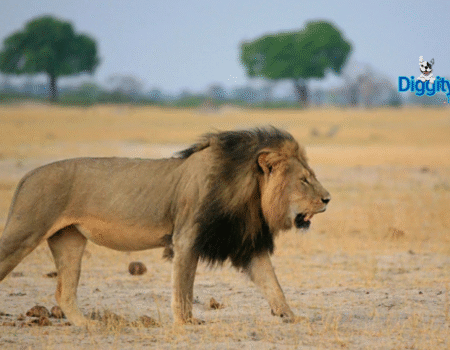Welcome to our comprehensive guide to exotic pet care. If you’re considering owning a unique and fascinating pet, this guide is for you. We’ll explore the world of exotic pets, from their legal status to their specific care requirements. Whether you’re interested in sugar gliders, hedgehogs, or other exotic creatures, we’ll provide you with the information you need to ensure a rewarding and responsible ownership experience.
Key Takeaways:
- Exotic pets can offer an exciting and unique ownership experience.
- Understanding the legality of owning an exotic pet is crucial.
- Consider the specific care requirements, including housing, diet, and veterinary care.
- Research your chosen exotic pet to understand their natural behaviors and potential health issues.
- Find an experienced veterinarian who specializes in exotic pets.
What Makes a Pet Exotic?
Exotic pets are fascinating creatures that spark curiosity and captivate our imaginations. But what exactly sets them apart from traditional pets? Let’s dive into the world of exotic pets and explore what makes them unique.
Exotic pets can be categorized as uncommon domesticated species or wild-caught animals. Uncommon domesticated species, such as hedgehogs and sugar gliders, require specialized care due to their unique needs. These adorable and tiny creatures have gained popularity for their charming personalities and adorable appearances.
Wild-caught animals, on the other hand, are species that were captured from their natural habitats and introduced to domestic settings. These animals may include reptiles, birds, amphibians, and mammals. While they can be captivating due to their wild nature, they often present challenges in terms of their dietary, environmental, and social needs, which may be difficult to replicate in a home setting.
“Exotic pets offer a glimpse into the wonders of the animal kingdom, allowing us to experience the extraordinary in our everyday lives.”
When considering owning an exotic pet, it’s essential to thoroughly research and understand their specific requirements. Each species has unique biological, dietary, and environmental needs that must be met to ensure their well-being.
Now, let’s take a closer look at some of the fascinating characteristics and demands of uncommon domesticated species and wild-caught animals:
| Uncommon Domesticated Species: | Wild-Caught Animals: |
|---|---|
|
|
As you can see from the table above, exotic pets come in various shapes and sizes. Each species offers its own unique set of challenges and rewards, making the journey of owning an exotic pet both exciting and fulfilling.
Understanding the distinct characteristics and requirements of exotic pets is crucial to ensure their well-being. Whether they are uncommon domesticated species or wild-caught animals, these extraordinary creatures deserve our utmost care and attention.
Legal Considerations for Exotic Pet Ownership
Before diving into the exciting world of exotic pet ownership, it’s crucial to understand the legal landscape surrounding it. Laws regarding exotic pets can vary significantly depending on your country, state, and even municipality. It’s important to research and abide by these laws to ensure the well-being of the animal and yourself, and to avoid any potential legal consequences.
Consulting with experts and understanding the legal responsibilities associated with owning an exotic pet is paramount. Expert advice can help clarify any confusion and ensure that you are fully informed about the legal requirements and obligations that come with exotic pet ownership.
Whether it’s permits and licenses, zoning restrictions, or specific regulations on certain species, being aware of the legal framework will not only keep you on the right side of the law but also promote responsible and ethical pet ownership.
“Understanding and complying with the laws governing exotic pet ownership is essential to protect both the welfare of these unique animals and to safeguard yourself legally.”
Factors to Consider Before Getting an Exotic Pet
Considering an exotic pet? Before diving into the extraordinary world of these unique companions, it’s important to weigh several crucial factors. Legal status, housing needs, dietary requirements, availability of specialized vet care, temperament and handling, and lifespan commitment are all essential considerations in making an informed decision for both you and your potential exotic pet.
First and foremost, legal status should be thoroughly researched. Depending on your state’s regulations, owning an exotic pet might have specific restrictions or require permits. Complying with these laws is essential to avoid potential legal consequences and ensure the well-being of the animal.
Next, it’s crucial to assess housing needs. Exotic pets often have unique requirements for their habitat, such as temperature, humidity, and environmental enrichment. Providing a suitable living environment is vital for their physical and mental well-being. Understanding these needs and investing in appropriate housing setups will create a comfortable home for your exotic pet.
In addition to housing, addressing dietary requirements is paramount. Exotic pets often have specific nutritional needs that differ from traditional pets. Some may require specialized diets or access to live prey. Ensuring a balanced and appropriate diet is crucial for their overall health and longevity.
Vet care availability is another significant consideration. Exotic pets often have unique health concerns and may require specialized veterinary care. Before getting an exotic pet, it’s important to find a veterinarian experienced in treating these species. Regular check-ups and prompt attention to any health issues are vital for their well-being.
Understanding the temperament and handling requirements of exotic pets is crucial for both their safety and yours. Some species may have specific socialization needs or require cautious handling. Knowing the temperament traits and handling techniques for the particular exotic pet you’re considering ensures a harmonious and nurturing relationship.
Lastly, lifespan commitment should not be underestimated. Exotic pets often have longer lifespans compared to traditional pets. With some species living for several decades, it’s essential to be prepared for the long-term commitment involved. Consider the time and resources you’re willing to dedicate to the care and well-being of your exotic pet over its entire lifespan.
Factors to Consider Before Getting an Exotic Pet:
| Factors | Considerations |
|---|---|
| Legal status | Research the legal requirements and restrictions for owning an exotic pet in your state. |
| Housing needs | Provide an appropriate habitat that meets the unique requirements of the chosen exotic pet. |
| Dietary requirements | Understand the specific nutritional needs and feeding routines of the exotic pet. |
| Vet care availability | Ensure that there are experienced veterinarians who can provide specialized care for exotic pets in your area. |
| Temperament and handling | Learn about the species-specific temperament traits and proper handling techniques for the chosen exotic pet. |
| Lifespan commitment | Be prepared for the long-term responsibility and commitment required for the entire lifespan of the exotic pet. |
Overview of Inexpensive & Legal Exotic Pets
When it comes to owning an exotic pet, there are several options that are both legal and budget-friendly. These unique creatures can bring joy and excitement into your life without breaking the bank. Let’s explore some examples of inexpensive and legal exotic pets:
Sugar Gliders
Sugar gliders are small nocturnal marsupials native to Australia, Indonesia, and New Guinea. These adorable creatures are known for their ability to glide through the air using a membrane between their wrists and ankles. Sugar gliders are social animals and can form strong bonds with their owners. They require a special diet that consists of fruits, vegetables, and protein sources. With a lifespan of 12-15 years, they can provide years of companionship and entertainment. Just make sure to research their care requirements thoroughly before bringing one home.
Hedgehogs
Hedgehogs are another popular choice for exotic pet enthusiasts. With their spiky appearance and low maintenance care, hedgehogs have become increasingly popular as pets. These small, insectivorous mammals are native to Europe, Asia, and Africa. Hedgehogs need a large enclosure with hiding spots and an exercise wheel to keep them active. Their diet consists of a combination of high-quality dry cat food, insects, and vegetables. Hedgehogs typically live for 4-7 years and can make great companions for those seeking a unique pet.
Chinchillas
If you’re looking for a small rodent with a long lifespan, consider getting a chinchilla. These fluffy creatures are native to the Andes mountains of South America and are known for their soft and dense fur. Chinchillas require a dust bath to keep their fur clean and healthy. They are herbivores and need a diet that includes fresh hay, pellets, and a small selection of fruits and vegetables. With proper care, chinchillas can live up to 15 years, making them a long-term companion for pet owners.
These are just a few examples of inexpensive and legal exotic pets that can bring excitement and uniqueness to your life. Remember, owning an exotic pet requires responsibility and proper care. It’s essential to research their specific needs, consult with experts, and ensure you can provide a suitable environment for their well-being.
The Impact of the Exotic Pet Trade
The exotic pet trade is a global industry that brings with it numerous harmful consequences for both animals and humans. The demand for exotic pets has fueled an illegal pet trade that causes immense suffering and poses significant risks.
Many animals endure extreme distress during their capture and transportation process, often resulting in injuries and even death. These animals are taken from their natural habitats and forced into cramped living conditions, far from the environments they are meant to thrive in.
Moreover, the exotic pet trade puts humans at risk. Many exotic animals carry zoonotic diseases that can be transmitted to humans, posing serious health risks. These diseases, such as salmonellosis and monkeypox, can have severe consequences for human health and require medical intervention.
Furthermore, the exotic pet trade has significant ecological consequences. The capturing of wild animals disrupts ecosystems and can lead to the decline of certain species. The removal of these animals from their natural habitats can impair biodiversity and negatively impact the delicate balance of ecosystems.
The harmful effects of the exotic pet trade make it crucial for us to raise awareness about this issue and promote responsible pet ownership. By understanding the risks and advocating for the protection of these animals, we can contribute to their well-being and the preservation of our natural world.
The exotic pet trade not only inflicts harm on animals but also puts humans at risk due to zoonotic diseases. Additionally, it disrupts ecosystems and threatens biodiversity. It’s our responsibility to take action and ensure the well-being of both animals and our environment.
To further understand the magnitude of this issue, let’s take a look at the available statistics.
| Statistics on the Exotic Pet Trade | |
|---|---|
| Number of animals captured annually | Approximately 5 million |
| Estimated value of the illegal exotic pet trade | USD 10 billion |
| Countries with the highest demand for exotic pets | United States, United Arab Emirates, China |
| Percentage of exotic pets that die during transport | 30% |
These statistics highlight the scale of the exotic pet trade and emphasize the urgent need for action to address this issue.
The Difference Between Exotic Pets and Domestic Animals
Owning an exotic pet is a unique experience that differs significantly from owning a domestic animal. When considering exotic pets, it’s important to understand the distinct factors that set them apart from traditional pets.
One notable difference is the cost of caring for exotic pets. Due to their specialized needs, such as specialized diets and veterinary care, exotic pets often require a higher financial investment compared to domestic animals. It’s crucial to budget for these additional expenses to ensure the well-being of your exotic pet.
Another difference is the lifespan of exotic pets. Domestic animals typically have shorter lifespans, while many exotic pets have significantly longer lifespans. This means that owning an exotic pet requires a long-term commitment and responsibility. As an owner, you must be prepared to provide care and companionship for an extended period.
Furthermore, the specialized care that exotic pets require sets them apart from domestic animals. Exotic pets have unique needs in terms of their environment, habitat, and nutrition. Creating an appropriate and stimulating environment for your exotic pet can be more challenging compared to domestic animals. It’s essential to research and understand the specific care requirements of your chosen exotic pet to ensure their well-being.
Meeting the unique needs of exotic pets, such as creating appropriate environments and providing specialized nutrition, can be more challenging compared to domestic animals. This requires careful research and dedication to ensure the health and happiness of your exotic pet.
While exotic pets may present additional challenges, they can also provide a rewarding and fulfilling experience. The opportunity to interact with fascinating and unconventional animals can be a source of joy and wonder. However, it’s essential to approach exotic pet ownership with careful consideration and a commitment to responsible care.
Researching Your Chosen Exotic Pet
Thorough research is essential before bringing an exotic pet into your home. As responsible pet owners, we must understand the specific requirements of each species to ensure their well-being. By taking the time to research, we can create an environment that mimics their natural habitat and meets their specialized needs.
Specific Requirements
Each exotic pet has unique requirements for their diet, habitat, temperature, and socialization. By understanding these specific needs, we can provide them with the appropriate care and environment they need to thrive. For example, reptiles may require specific heat and humidity levels, while birds may need a diverse mix of seeds and fresh produce.
Natural Behaviors
Researching the natural behaviors of your chosen exotic pet is crucial for their overall well-being. Understanding how they behave in their natural habitat will help us create an environment that allows them to engage in their instinctual behaviors. For instance, providing hiding spots or climbing structures for small mammals or providing ample space for birds to fly and perch.
“Researching the natural behaviors of your exotic pet will help create a stimulating and enriching environment for them.
Health Issues
Being aware of the potential health issues associated with your chosen exotic pet is important for their long-term health. Different species may be prone to certain conditions or have specific healthcare needs. By understanding these health concerns, we can ensure that they receive the necessary veterinary care and take preventative measures to promote their well-being.
Lifespan
Knowing the average lifespan of your exotic pet is essential for responsible ownership. Some exotic pets may have longer lifespans compared to traditional pets, requiring a lifelong commitment. Understanding their lifespan allows us to plan and provide care for the entirety of their lives, ensuring they receive the love and attention they deserve.
Researching your chosen exotic pet is an integral part of being a responsible owner. By gaining knowledge about their specific requirements, natural behaviors, potential health issues, and lifespan, we can provide a safe and enriching environment that meets their unique needs.
Finding an Experienced Veterinarian
Exotic pets require specialized care and attention to ensure their health and well-being. Regular veterinary check-ups are crucial to maintaining their overall health and addressing any potential health concerns. It is important to find an experienced exotic pet veterinarian who has the knowledge and expertise to provide the best care for your unique pet.
When searching for an exotic pet veterinarian, consider the following:
- Experience: Look for a veterinarian who has experience in treating exotic pets. They should be familiar with the specific needs and health concerns of your pet’s species.
- Specialized Care: Exotic pets have different care requirements compared to traditional pets. Ensure that the veterinarian you choose can provide specialized care tailored to your pet’s unique needs.
- Routine Check-ups: Regular check-ups are essential to monitor your pet’s health and detect any potential issues early on. Find a veterinarian who can schedule routine check-ups to ensure your pet stays healthy.
- Emergency Services: Emergencies can happen at any time. It is important to choose a veterinarian who offers emergency services or has reliable referrals for after-hour care.
By finding an experienced veterinarian, you can have peace of mind knowing that your exotic pet is receiving the best possible care. They can provide guidance on nutrition, preventive care, and any specific health concerns related to your pet’s species.
“An experienced exotic pet veterinarian is essential for providing specialized care and ensuring the overall health and well-being of your unique pet.” – Dr. Emily Adams, Exotic Pet Veterinarian
Remember to schedule routine check-ups with your exotic pet veterinarian and consult with them regarding any health concerns or changes in your pet’s behavior. Their expertise and guidance will help you provide the best possible care for your exotic pet.
| Veterinarian | Specialization | Contact Information |
|---|---|---|
| Dr. Emily Adams | Exotic Pets | 123-456-7890 |
| Dr. Michael Chen | Avian and Reptiles | 987-654-3210 |
| Dr. Sarah Johnson | Small Mammals | 567-890-1234 |
Creating an Appropriate Environment
Exotic pets require specialized habitats that cater to their unique needs. By providing an environment that mimics their natural habitat, we can ensure their overall health and well-being. Proper temperature control, lighting, humidity regulation, and specific substrates are essential elements to consider.
Temperature control is crucial for exotic pets, as they often thrive in specific temperature ranges. Some species require warm environments, while others prefer cool temperatures. It’s important to research the optimal temperature range for your exotic pet and ensure their habitat is equipped with the necessary heating or cooling systems.
Lighting is another important aspect of creating an appropriate environment. Some exotic pets, like reptiles, rely on specific wavelengths of light for metabolic processes such as digestion and vitamin synthesis. Providing the correct lighting, including UVB and UVA rays, is vital for their overall health.
Humidity regulation is key for species that thrive in humid environments. An enclosed habitat with appropriate humidity levels helps maintain healthy skin, respiratory functions, and proper shedding for reptiles and amphibians. Using humidity gauges and misting systems can help achieve and maintain the desired humidity levels.
Selecting the right substrates is essential for exotic pets’ comfort and well-being. Substrates provide a naturalistic and comfortable flooring option depending on the species’ needs. For example, reptiles may require substrates that retain moisture, while arachnids might benefit from substrates that allow burrowing.
Creating a mentally and physically stimulating environment is crucial for the overall wellness of exotic pets. Enrichment activities such as providing hiding spots, climbing structures, or interactive toys can help prevent boredom and promote natural behaviors.
By understanding and implementing these factors, we can ensure our exotic pets thrive in their specialized habitats, leading to a healthy and fulfilling life.
“Creating an appropriate environment that mimics their natural habitat is essential for the overall health and well-being of exotic pets.”
Specialized Nutrition for Exotic Pets
Exotic pets have unique dietary requirements that must be understood and met in order to ensure their optimal health and well-being. Each species may have specific dietary needs that differ from traditional pets, such as the need for live insects in the diet of reptiles or a diverse mix of seeds and fresh produce for birds. Providing a balanced and nutritious diet is essential for the overall health and longevity of exotic pets.
It is important for exotic pet owners to educate themselves on the specific dietary requirements of their chosen pet. This may involve consulting with experts, such as veterinarians specializing in exotic pets or reputable breeders, to ensure that they have accurate and up-to-date information on the nutritional needs of their pet. They can provide valuable guidance on the appropriate diet, including the types and quantities of food to be fed, as well as any necessary supplements to ensure a well-rounded and balanced diet.
Importance of a Balanced Diet
A balanced diet is crucial for exotic pets as it provides them with the essential nutrients they need to thrive. This includes a proper balance of proteins, carbohydrates, fats, vitamins, and minerals. A diet lacking in any of these essential components can lead to nutritional deficiencies, which can have serious consequences for the pet’s health.
Exotic pets may have specific dietary requirements based on their natural habitat or evolutionary adaptations. For example, herbivorous animals, such as guinea pigs or some species of reptiles, require a diet rich in fiber and low in fat. On the other hand, carnivorous species, such as certain reptiles and birds of prey, require a diet high in protein and fat. Understanding the natural diet of the species can help owners replicate those nutritional needs in captivity.
“Providing a balanced and nutritious diet is essential for the overall health and longevity of exotic pets.”
Meeting Specific Dietary Needs
Here are some examples of specific dietary requirements for common exotic pets:
- Reptiles: Reptiles often require a combination of live insects, such as crickets or mealworms, and fresh fruits and vegetables. Some may also need calcium and vitamin D3 supplements to support healthy bone growth and prevent metabolic bone disease.
- Birds: Birds have diverse dietary needs depending on their species. Some may require a mix of seeds, fresh fruits, vegetables, and even small amounts of cooked meat. Others may have specific dietary restrictions, such as avoiding certain fruits or nuts.
- Small mammals: Small mammals like rabbits, guinea pigs, and hamsters need a diet rich in hay, fresh vegetables, and a small amount of pellets. Some species, like sugar gliders, require a specialized diet that includes a combination of nectar, fruits, vegetables, and protein sources such as insects.
It’s important to remember that a pet’s dietary needs can change as they age or go through different life stages. Regular monitoring of their health and consulting with a veterinarian can help ensure that their nutritional needs are being met throughout their lifespan.
Conclusion
Owning an exotic pet is an exciting adventure that requires responsible ownership and a lifelong commitment. To ensure the well-being of these extraordinary companions, it is crucial to engage in thorough research, understand legal requirements, provide appropriate environments and nutrition, and find experienced veterinary care.
By dedicating our time and effort to understanding the specific needs of our exotic pets, we can create a fulfilling life for them. This involves creating specialized habitats that mimic their natural environments, offering a diverse and balanced diet that meets their unique nutritional requirements, and addressing any health concerns promptly through regular check-ups with an experienced exotic pet veterinarian.
Responsible ownership also means recognizing the legal responsibilities associated with exotic pet ownership. Familiarizing ourselves with local laws and regulations ensures not only the well-being of our pets but also the safety and harmony of our communities.
Remember, owning an exotic pet is not a decision to be taken lightly. It is a lifelong commitment that requires dedication, patience, and an unwavering commitment to providing the best care possible. Through responsible ownership and a deep understanding of exotic pet care, we can embark on a remarkable journey with our extraordinary companions.
FAQ
What are exotic pets?
Exotic pets are uncommon domesticated species or wild-caught animals that require specialized care due to their unique needs.
What legal considerations should I be aware of before getting an exotic pet?
It is crucial to understand the legal status of owning an exotic pet in your area. Laws regarding exotic pet ownership vary by country, state, and municipality. Researching and abiding by these laws is important to ensure the well-being of the animal and avoid legal consequences.
What factors should I consider before getting an exotic pet?
Before getting an exotic pet, consider the legal status of ownership in your state, meeting their specific housing needs, providing appropriate dietary requirements, ensuring the availability of specialized veterinary care, understanding their temperament and handling requirements, and being prepared for the long-term commitment involved due to their longer lifespans compared to traditional pets.
What are some inexpensive and legal exotic pets?
Some examples of inexpensive and legal exotic pets include sugar gliders, hedgehogs, and chinchillas. These pets offer a unique and exciting experience without breaking the bank.
What impact does the exotic pet trade have?
The exotic pet trade can have harmful consequences for animals and humans. Many animals suffer during capture and transportation, while others end up in cramped spaces far from their natural habitats. The trade also poses risks to humans, as many exotic animals carry zoonotic diseases that can be transmitted to humans.
How are exotic pets different from domestic animals?
Exotic pets are often more expensive to care for due to their specialized needs, such as specialized diets and veterinary care. They also have longer lifespans compared to traditional pets. Meeting the unique needs of exotic pets can be more challenging compared to domestic animals.
How do I research my chosen exotic pet?
Thorough research is essential before bringing an exotic pet into your home. Each species has specific requirements for diet, habitat, temperature, and socialization. Understanding their natural behaviors, potential health issues, and lifespan is crucial for providing optimal care.
How do I find an experienced veterinarian for my exotic pet?
Finding an experienced exotic pet veterinarian is crucial for maintaining the well-being and health of your pet. They can provide routine check-ups and attention to any species-specific health concerns.
How do I create an appropriate environment for my exotic pet?
Exotic pets often require specialized habitats that meet their unique needs. This may include temperature-controlled enclosures, proper lighting, humidity regulation, and specific substrates. Providing the necessary resources for their mental and physical stimulation is crucial.
What kind of specialized nutrition do exotic pets need?
Exotic pets have specific dietary needs that must be met for their optimal health. Each species may have different requirements, such as live insects for reptiles or a diverse mix of seeds and fresh produce for birds. Providing a well-balanced diet ensures the overall health and longevity of exotic pets.
What does owning an exotic pet entail?
Owning an exotic pet requires responsible ownership and a lifelong commitment. Thorough research, understanding legal requirements, providing appropriate environments and nutrition, and finding experienced veterinary care are paramount.










No Comment! Be the first one.